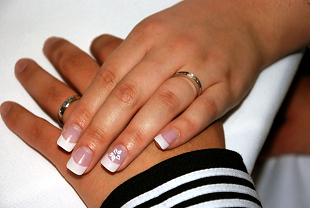
Even if those exact words weren’t spoken at your wedding ceremony, the pledge is implied. As husbands and wives, we promise to be there for each other in each of life’s trials, and very often, those trials include those we suffer with our health. We can do the best we can to stave off sickness, but it will still find us from time to time.
Sometimes the illness is somewhat minor, like mine this week. I didn’t think it was minor at the time, believe you me, but now that I have perspective, it really was. I’m already up and around a little bit, I’m starting to eat again, and I’m sure the muscle aches will go away soon. Then we run all the way to the other end of the spectrum to diseases such as cancer or Alzheimer’s, where the caregiver sits anxiously by the bedside, not knowing how to help, anxious for any relief for their loved one.
Illness is part of having mortal bodies. We wouldn’t be human without illness. But we can, through our dedication and devotion to our spouse, make an uncomfortable or even miserable experience better.
Offer them your love and constant support. Keep them hydrated, check on them frequently, and see to their pressing concerns – was there a phone call they were supposed to make before they fell ill? See if there are any tasks you can do that will ease their minds so they can sleep comfortably.
If you are in a long-term care situation, make sure you get rest, too. Call on friends, church members, or family to come in and help out so you don’t get worn down. Yes, you want to be there for your loved one as much as possible, but if you wear yourself out, you aren’t helping them. If you have been the only care giver for a long time, and you feel you can’t do it anymore, be sure to tell someone. Don’t feel you have to shoulder the care alone—and don’t feel as though you’re somehow turning your back on your loved one. Very few of us are trained nurses, and very few of us know what to do in all circumstances. Asking for help is not abdicating your responsibility.
Above all, show your love and support. Often, just having a sweetheart close at hand is enough to make the ill person feel comforted. Love truly is the greatest healer.
Related Blogs:
Quick Household Remedies for Stomach Problems
Relationship Between Patient and Caregiver Makes a Difference

